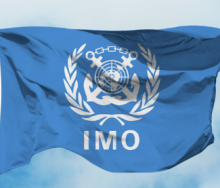The global economy, still reeling from the pandemic and Russia’s invasion of Ukraine, is facing an increasingly gloomy and uncertain outlook, according to a blog post by Pierre-Olivier Gourinchas of the International Monetary Fund (IMF).
Higher-than-expected inflation, especially in the United States and major European economies, is triggering a tightening of global financial conditions. China’s slowdown has been worse than anticipated amid Covid-19 outbreaks and lockdowns, and there have been further negative spill-overs from the war in Ukraine. As a result, global output contracted in the second quarter of this year, says Gourinchas.
“Under our baseline forecast, growth slows from last year’s 6.1% to 3.2% this year and 2.9% next year, downgrades of 0.4 and 0.7 percentage points from April. This reflects stalling growth in the world’s three largest economies - the United States, China and the euro area - with important consequences for the global outlook.”
Gourinchas says in the United States, reduced household purchasing power and tighter monetary policy will drive growth down to 2.3% this year and 1% next year. In China, further lockdowns, and the deepening real estate crisis pushed growth down to 3.3% this year - the slowest in more than four decades, excluding the pandemic. And in the euro area, growth is revised down to 2.6% this year and 1.2% in 2023, reflecting spill-overs from the war in Ukraine and tighter monetary policy.
But despite slowing activity, global inflation has been revised up, in part due to rising food and energy prices. Inflation this year is anticipated to reach 6.6% in advanced economies and 9.5% in emerging market and developing economies - upward revisions of 0.9 and 0.8 percentage points respectively - and is projected to remain elevated longer. Inflation has also broadened in many economies, reflecting the impact of cost pressures from disrupted supply chains and historically tight labour markets.
The outlook, says Gourinchas, has darkened significantly since April. He believes the world may soon be teetering on the edge of a global recession, only two years after the last one. Multilateral cooperation will be key in many areas, from climate transition and pandemic preparedness to food security and debt distress. “Amid great challenge and strife, strengthening cooperation remains the best way to improve economic prospects and mitigate the risk of geoeconomic fragmentation.”














